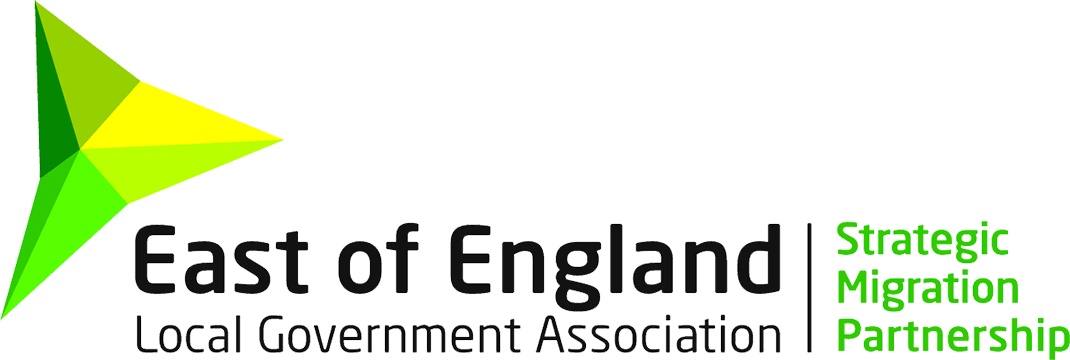Achieving Equity in Maternity Healthcare
Equity in Healthcare
Introduction to Perinatal Mental Health Leaflets:
- English - V3.0 Support Available During Your Pregnancy (1)
- Urdu - Urdu Support Available During Your Pregnancy
- Romanian - Romanian Support Available During Your Pregnancy
- Polish - Polish Support Available During Your Pregnancy
- Portuguese - Portuguese Support Available During Your Pregnancy
- Hindi - Hindi Support Available During Your Pregnancy
Maternity services across Suffolk and north east Essex have responded to a recent national inquiry into racial injustice and human rights in maternity care by launching a ground-breaking new initiative which aims to eradicate health inequalities for diverse communities.
It’s OK to Ask is a project that debunks the myths around discussions on ethnicity, gender identity and disability for fear of offending, and aims to improve the maternity experience for all.
It features a series of short films with local people from various backgrounds who have lived experience of maternity services. The theme is a common one – ask us about our ethnicity, disability, gender identity and highlighting that it’s neither racist, discriminatory or homophobic to talk with people about their specific needs – in fact, it’s necessary and appropriate in order to put the person at the centre of their care.
We live in a country rich in cultural heritage, but the value in this diversity is sometimes not fully seen.
Valuing our diverse culture in Britain today is all about understanding and respecting other people's beliefs and ways of life (as we would expect someone to respect ours). It is about supporting individuals in keeping their cultural traditions alive and appreciating the fact that all these different cultural traditions will enrich British life both today and in the future. (MyLearning, 2012)
Equity in healthcare is supporting and educating professionals to understand and take into account culture, ethnicity, race, language and recognising everyone person is different when engaging with clients. Recognising barriers to accessing care and understanding how adapting services can improve access to healthcare will improve services for all.
Equity in Maternity Care
No doubt tackling inequalities, especially racism, is vital, emotive and challenging. It requires leaders, organisations and individuals to understand their own biases, beliefs and behaviours. We will only tackle inequalities by understanding people’s experience of them and acting to change (Advancing mental health equalities strategy, September 2020).
Based on the 2011 England and Wales Census, East of England has a total of 85.3% White British, 5.5% White other, 4.8% Asian, 2.0% Black, 1.9% Mixed and 0.5% Other. Each and every person comes with their own cultural and religious beliefs that requires us to value and respect. The Maternity Transformation Programme (NHS) has been a drive to ensure that every woman or birthing person receives a personalised care plan, that echoes their choices throughout their continuity of care. This can only be achieved by recognising the cultural and religious context of women without projecting religious or racial stereotyping (A Cultural Diversity Document, 2014).
The key is to always check with the woman or birthing person and do not assume (A Cultural Diversity Document, 2014). Personalisation and choice means that you treat the woman or birthing person as an individual by listening and empowering them to make positive memories of the pregnancy journey. At times, holding their hand and wiping their tears when the journey has some challenges.
Equity in Perinatal Mental Healthcare
Perinatal mental health (PMH) problems are those which occur during pregnancy or in the first year following the birth of a child. Perinatal mental illness affects up to 20% of new and expectant mums and covers a wide range of conditions.
If left untreated, mental health issues can have significant and long-lasting effects on the woman, the child, and the wider family. Specialist PMH services provide care and treatment for women with complex mental health needs and support the developing relationship between parent and baby. They also offer women with mental health needs advice for planning a pregnancy.
Perinatal Mental Health Services in the East of England have created the following leaflets to provide information about access to perinatal mental health services in five most spoken languages in the East of England:
The NHS Long Term Plan builds on the commitments outlined in the Five Year Forward View for Mental Health to transform specialist PMH services across England. We aim to ensure that by 2023/24, at least 66,000 women with moderate/complex to severe PMH difficulties can access care and support in the community.
Differences in access and utilisation of mental health services in the perinatal period for women from ethnic minorities are discussed here
More information about Equality and Diversity can be accessed here:
Writing about Ethnicity:
How we write about ethnicity, including words and phrases we use and avoid, and how we describe ethnic minorities and different ethnic groups.
https://www.ethnicity-facts-figures.service.gov.uk/style-guide/writing-about-ethnicity
Equality, diversity and health inequalities:
https://www.england.nhs.uk/about/equality/
The Royal College of Midwives
https://www.rcm.org.uk/supporting/equality-diversity/
To find out more information on different communities please click on the individual cards:














